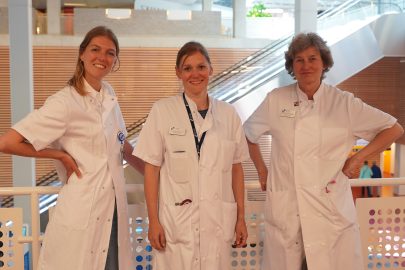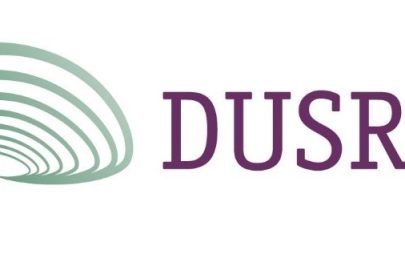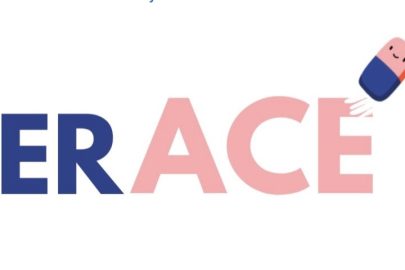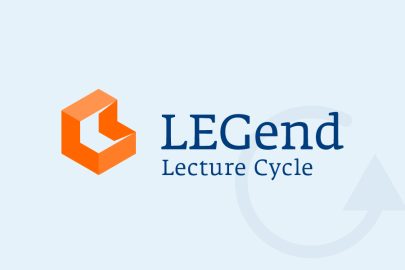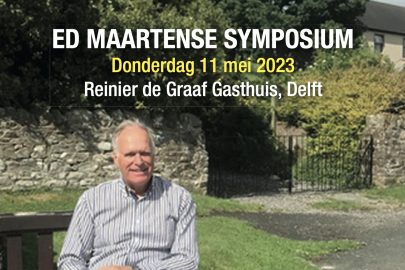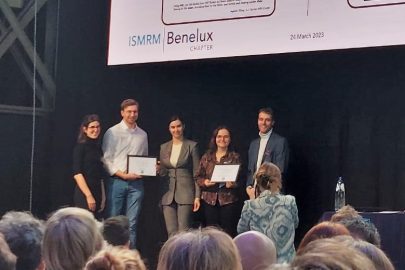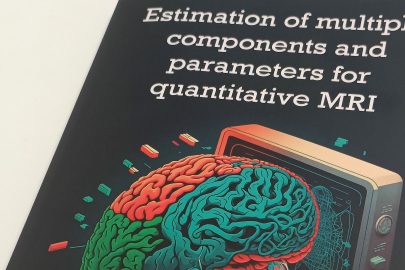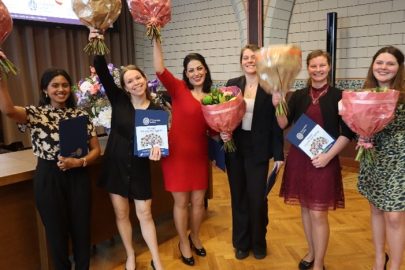Upfront dose reduction of chemotherapy in older patients with metastatic colorectal cancer may reduce the number of severe side effects of chemotherapy and thus improve quality of life. Dr. Nienke de Glas and her team have received funding from the Dutch Cancer Society (KWF) to investigate dose-reduced chemotherapy in a randomized trial that will be enrolled in 40 Dutch hospitals.
In the Netherlands, more than half of the patients diagnosed with metastatic colorectal cancer are 70 years or older. [...]
Read
We are pleased to announce the annual meeting of The Dutch Society for Research on Ageing (DuSRA) that will take place from 15 June till 16 June 2023 at the University Medical Center, Groningen, The Netherlands.
Confirmed keynote speakers are:
Mihai Netea (Radboud UMC, Nijmegen), Collin Ewald (ETH Zürich), and Ron Jachimowicz, (MPI Biology of Aging, Cologne).
Abstract submission deadline May 15th 2023
To try to improve structural support for aging research in the Netherlands for the coming years, the [...]
Read
Researchers at Health Campus the Hague (LUMC) and the Juliana Children’s Hospital (the Hague), have started a new study on the intergenerational transmission of parental adverse childhood experiences (ACEs). These are potentially traumatic events that occur during childhood. ACEs can have long-lasting negative consequences. Recent literature even suggests that parents can transmit their ACEs onto their children. Children born to parents with ACEs have a higher risk of being born prematurely or small for gestational age. The mechanisms of intergenerational [...]
Read
You are all invited to join our next exciting Lecture Cycle session on the 19th of June from 17.00-18.00 in J-01-116 (LUMC building 1), route 554, or via Microsoft Teams. In the session we will discuss the Leiden Longevity Study (LLS), one of the most original and deeply phenotyped LUMC cohort studies with over 20 years of follow up aimed at establishing determinants of health, (co)morbidity, mortality and longevity. Numerous publications and collaborations have resulted from this study.
This [...]
Read
Ed Maartense Symposium
In het Reinier de Graaf Gasthuis is sedert jaar en dag aandacht voor de behandeling van oncologische patiënten op oudere leeftijd en de specifieke zorg die past bij hun behandeling. Dr. Ed Maartense was een van de pioniers in dit aandachtsgebied. Meer dan 30 jaar heeft hij zich als internist hematoloog en oncoloog toegelegd op de behandeling van oudere patiënten met kanker en zeer veel jongere collegae opgeleid in de geriatrische oncologie. Ter nagedachtenis aan hem [...]
Read
At the ISMRM Benelux conference in Brussels, Belgium, Bárbara Schmitz Abecassis and Ingmar Eiling of the LUMC Radiology and C.J. Gorter MRI Center were awarded first prize of a lay-person communication contest. Submissions were judged by researchers and a patient group for their style and ability to make complex ideas accessible to non-experts.
Bárbara explained her work in glioma MR imaging (a type of brain cancer) using chemical exchange saturation transfer, or CEST, in a non-technical summary. Ingmar made a [...]
Read
When predicting biological age in research, regression to the mean can be an issue. Marije Sluiskes and others from LEGend posted a PubPeer comment (a postpublication peer review platform) to a recent publication of Daunay et al. 2022 (Aging) which did not consider this phenomenon.
Daunay et al. compare four types of epigenetic clocks in three groups: semi-supercentenarians (mean age ± standard deviation: 101.3 ± 1.4), offspring of nonagenarians and centenarians (61.2 ± 6.1), and individuals from the general [...]
Read
In the LUMC, every 2nd Tuesday of the month, at 12.00 o’clock, a walk-in session will be held to help PhD candidates with the Converis Graduate School module. The Graduate School office will provide tips & tricks and answer any questions regarding PhD milestones and practical issues. The first session will be held on April 11th, 2023.
Walk-in sessions will also be held for Primary Thesis advisors – these will be held on the last Thursday once every quarter, also [...]
Read
This Wednesday the 15th of March, Martijn Nagtegaal received his PhD title with honors (cum laude). The defense took place at the Senaatszaal of the Technical University (TU) Delft. His PhD project was part of the Medical Delta collaboration Diagnostics 3.0: Dementia and Stroke, with shared supervision from TU Delft, Erasmus MC and LUMC (Jeroen de Bresser and Thijs van Osch).
Read
A new group of students from the Master’s Vitality & Ageing have received their diploma in the Academic Building of the University of Leiden. This Master’s prepares students for an important role in improving the future of our care. The program can be followed in one fulltime year. However, since 2021, there is also the option to do it in two part-time years and thus combine it with a professional career or second Master’s. The unique, future-focused and interdisciplinary Master’s [...]
Read
